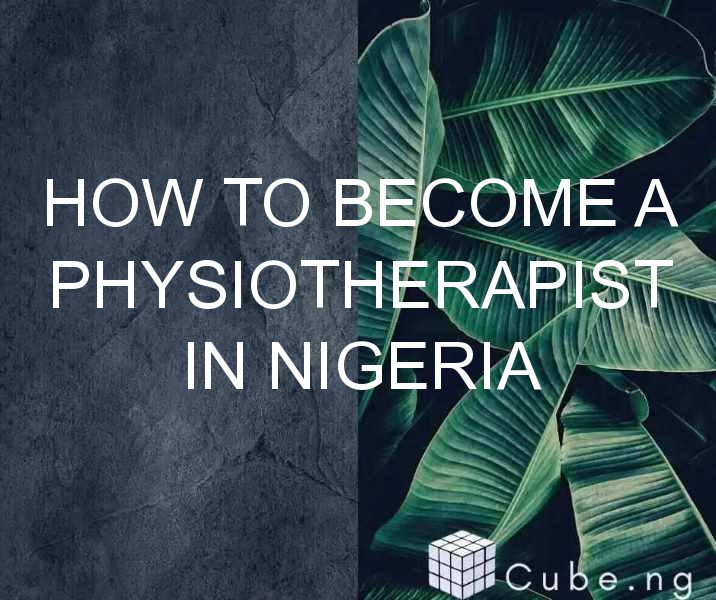How to Become a Physiotherapist in Nigeria
If you are interested in becoming a physiotherapist in Nigeria, there are certain things you need to know. Physiotherapy is a field that deals with the prevention, treatment, and rehabilitation of physical impairments, disabilities, and pain. It is a rewarding career that offers opportunities for personal and professional growth. In this article, we will discuss the steps you need to take to become a physiotherapist in Nigeria.
Step 1: Obtain a Bachelor's Degree in Physiotherapy
The first step to becoming a physiotherapist in Nigeria is to obtain a bachelor's degree in physiotherapy. This degree can be obtained from any of the accredited universities in Nigeria. The course usually takes about four to five years to complete and covers areas such as anatomy, physiology, kinesiology, biomechanics, and pathology.
Step 2: Complete a Clinical Internship
After obtaining a bachelor's degree in physiotherapy, you are required to complete a clinical internship. This is a mandatory requirement for registration with the Medical Rehabilitation Therapists Board of Nigeria (MRTBN). The internship usually lasts for one year and is designed to provide you with practical experience in physiotherapy.
Step 3: Obtain a License from the MRTBN
Once you have completed your clinical internship, you are required to obtain a license from the MRTBN. This is a regulatory body that oversees the practice of physiotherapy in Nigeria. To obtain a license, you must meet certain requirements, including passing the MRTBN licensing examination.
Step 4: Gain Professional Experience
After obtaining your license, you can start working as a physiotherapist. It is recommended that you gain some professional experience before starting your own practice. This will give you the opportunity to learn from experienced physiotherapists and develop your skills.
Step 5: Attend Continuing Education Courses
Physiotherapy is a field that is constantly evolving. To stay abreast of the latest developments in the field, it is important to attend continuing education courses. These courses will help you to improve your skills and knowledge and stay informed about new treatment modalities and techniques.
Step 6: Consider Specializing
Physiotherapy is a broad field that includes several specialties, including sports physiotherapy, neurophysiotherapy, and pediatric physiotherapy. Consider specializing in a particular area to enhance your expertise and expand your practice.
Step 7: Join a Professional Association
Joining a professional association is a great way to network with other physiotherapists and stay informed about the latest developments in the field. Some of the professional associations in Nigeria include the Nigerian Society of Physiotherapy and the Association of Nigerian Physiotherapists in America.
Conclusion
Becoming a physiotherapist in Nigeria requires dedication, hard work, and a commitment to lifelong learning. By following the steps outlined in this article, you can obtain the education, training, and experience you need to succeed in this rewarding career. Remember, the key to success in physiotherapy is to remain committed to providing the best possible care to your patients.
FAQs
Q1. How long does it take to become a physiotherapist in Nigeria?
A1. It takes about four to five years to obtain a bachelor's degree in physiotherapy and another year to complete a clinical internship.
Q2. Do I need to obtain a license to practice physiotherapy in Nigeria?
A2. Yes, you need to obtain a license from the Medical Rehabilitation Therapists Board of Nigeria (MRTBN) before you can practice physiotherapy in Nigeria.
Q3. Can I specialize in a particular area of physiotherapy?
A3. Yes, there are several specialties in physiotherapy, including sports physiotherapy, neurophysiotherapy, and pediatric physiotherapy.
Q4. Is continuing education important for physiotherapists?
A4. Yes, continuing education is important for physiotherapists to stay informed about the latest developments in the field and improve their skills and knowledge.
Q5. Are there professional associations for physiotherapists in Nigeria?
A5. Yes, some of the professional associations in Nigeria include the Nigerian Society of Physiotherapy and the Association of Nigerian Physiotherapists in America.




